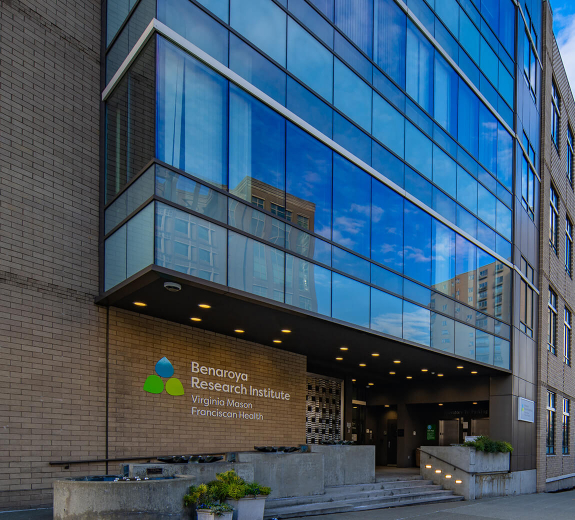Benaroya Research Institute at Virginia Mason (BRI) recently received a nearly $1.8 million grant to study a type of cell that is an early responder in the immune system response to infection. The award is from the National Institute of Allergy and Infectious Diseases (NIAID). The cells, called dendritic cells, will be studied in models of lupus.
Dendritic cells are a type of white blood cell that are involved in the early defense against infection, says Jessica Hamerman, PhD, Principal Investigator for the grant and a faculty member in the Immunology Program at BRI. The cells are poised throughout the body to detect infections and to alert the immune system through the production of inflammatory mediators and through interactions with other cells of the immune system. Although dendritic cell responses are beneficial to people to eliminate infection, they can be detrimental if unchecked and can lead to autoimmune disorders such as lupus, rheumatoid arthritis and many other diseases.
This study will help scientists understand how dendritic cells signal the proteins that cause inflammation, how they are regulated in the presence and absence of infection and how to manipulate the immune system to achieve more efficient elimination of infections to regulate the inflammatory response during disease. These discoveries can be used to help develop vaccines and immune-modulating drugs to prevent and treat infections as well as to regulate inflammatory response during disease.
In earlier studies, Dr. Hamerman found that certain proteins in dendritic cells contribute to lupus. "If we can understand this early response of the immune system, we can better understand how the immune system works as a whole," she says.
There are more than 80 types of autoimmune diseases. They occur when the body’s immune system, designed to protect the body, attacks it instead. The damage caused to the body’s tissues is devastating, disabling and can be life-threatening. Autoimmune diseases strike one in 20 Americans. Lupus is an autoimmune disease where the immune system attacks healthy cells and tissues and can cause severe joint and muscle pain, extreme exhaustion, fevers, skin rashes and can lead to organ failure and death. Approximately 1.5 million Americans have a form of lupus with 90 percent being women. Most people develop lupus between the ages of 15 and 44, and lupus is two to three times more prevalent among women of color.



